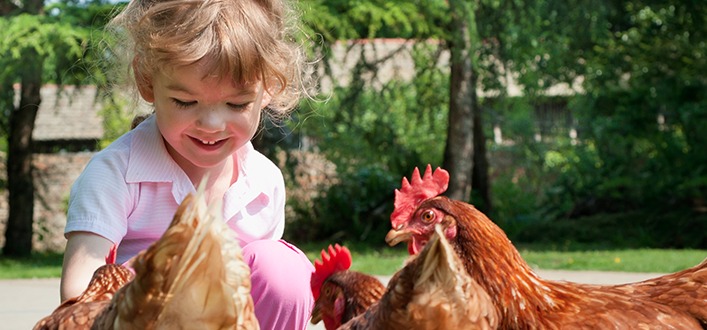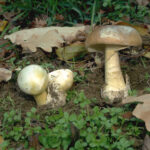
Backyard chickens are becoming popular with 3% of Australian households reporting that they keep chickens according to a survey by Animal Medicines Australia. But, with growing rates of Salmonella infections, the Food Safety Information Council is warning about being hygienic when handling your chooks and their eggs.
Rachelle Williams, Food Safety Information Council Chair, said that 65% of chicken owners report that they keep chickens for their eggs and another 10% because they want to educate their kids and teach responsibility. On Pet Day 2018 it is good to know that studies show owning a pet can reduce the incidence of allergies and help strengthen the immune system in children exposed to pets in early childhood.
Animal Medicines Australia Executive Director, Ben Stapley, said hygienic practices, such as washing your hands after cleaning up after your chickens, reduces the risk of illnesses from germs that can be shared between us and our chooks.
‘It is also important to vaccinate your chickens to prevent the spread of diseases from the chicken and keep them healthy with medications for parasites including roundworms and tapeworms,’ Mr Stapley said.
‘Our own health is interlinked to the health of our pets, livestock and the environment,’ Mr Stapley said. ‘Food safety is one area that is within our control to achieve better health outcomes and sustainable communities.’
Here are 5 simple tips about how to avoid infections from your chickens and their eggs:
- Keep the nesting materials and litter clean and dry and change it regularly,
- Gather eggs from their nesting places daily to make sure they are fresh.
- Carefully check any eggs for cracks, wipe off any visible dirt with a dry cloth or paper towel but don’t wash the eggs in water – this can transfer the contamination into the egg contents.
- Don’t use backyard eggs in egg dishes that will be served raw or only minimally cooked, as the shells are more likely to be contaminated with Salmonella than commercially washed eggs, which are washed under carefully controlled conditions.
- Always remember to wash your hands with soap and water and dry thoroughly after handling your chickens and their eggs. If children and grandchildren have been helping, be sure they wash their hands too.
- If your chickens look unwell check with a vet.
For more information see Food safety and pets fact sheet
Media contacts:
| Lydia Buchtmann
Communications Director Food Safety Information Council 0407 626 688 |
Ben Stapley
Executive Director Animal Medicines Australia 0436 191 011 |



